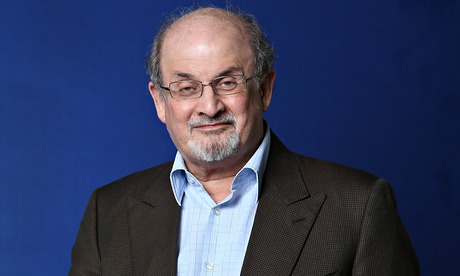 |
| Tusitala's logo is a kitsune, a fox with 9 tails, which features in Japanese, Korean and Chinese folklore |
Wendy Wong is Studio Manager
/ Creative Director of Tusitala. The
name is Samoan for storyteller, or a teller of tales – fitting, since Tusitala is a digital publisher of indie authors. The
company is based in Singapore, and is a huge fan of Asian content and Asian
writers.
I
spoke to Wendy about eBooks in Asia generally.
Are eBooks as popular in Asia as in the west?
Not yet, since there are issues around availability and accessibility.
Can you expand on that?
One of
the biggest barriers to eReading in Singapore and in Asia generally is that the
larger providers of eBooks – Amazon and Apple iBooks – don’t allow for potential
readers in Asia to buy eBooks directly. To make an eBook purchase on your
Kindle, for example, you’d need an American address and credit card. If you’re
especially dedicated, you’d find a backdoor entry, and the locally available service
Kindle Concierge can purchase eBooks on your behalf, so you can bypass all the
off-putting red tape, but most local eBook enthusiasts end up with libraries of
pirated eBooks.
Google
Play Books has recently entered Asia, and at Tusitala we hope that Amazon and
Apple will follow Google’s example by expanding into the largely untapped Asian
market, thus making eReading more commonplace.
Aren’t there any local eBook
retailers?
In
Singapore, local eBook stores come and go. Amongst those that survived are
Booktique and M1 Learning Center, yet little is done to publicize their
services to the general public. (Note, in Hong Kong, eBooks are readily
available through Paddyfield.)
Given the problems of
availability, how aware of eBooks are readers in Asia?
I think
readers may be aware of eBooks, but local authors are often unaware of how easy
it is to publish digitally and to access worldwide markets. At Tusitala, as digital
publishers, we do our part to celebrate Asian content and to get Asian authors
to try ePublishing. It isn’t always easy, but we believe that it is a
necessary process that will end with a more vibrant and locally relevant eBooks
scene, certainly in Singapore, and then more generally in the rest of Asia.
Do you think libraries have a
role in helping raise awareness of eBooks?
Yes. In
Singapore, National Arts Council data shows that eRetrievals at libraries
across the island have recently seen a spike; in response the National Library
has expanded and diversified its collection of eBooks to include more languages
and titles. The National Library Board has also been quite vocal lately about
their eBook borrowing campaign, and we hope that this encourages people to
consider eReading as the convenient and hassle-free experience that it is.
What about the language issue? Are eBooks available in languages other than
in English?
Sure. In Singapore, local content in Chinese, Malay
and Tamil is abundant. But while there is no dearth of quality Asian-language
content, people here primarily read in English. I expect this aspect of eBook
publishing in Asia varies market by market.
I see the
main advantage of eBooks as giving me access to content that wouldn’t otherwise
be available to me in Asia. What do you
see as the advantages?
Reading habits have adapted to the fast-paced
lifestyles of developed Asia – increasingly, people consume news or articles on
their phones. By comparison, reading books seems to be a choice that needs to
be made (do I lug a novel through my commute?), not an option that is readily
available on readers’ gadgets (let me scroll to my e-reader app), and eBooks
can help level the field between surfing for information, and reading for
pleasure.
I
sometimes find eBooks frustrating, for example, in non-fiction titles, flipping
to illustrations, or trying to follow footnotes. Do you think the format has any disadvantages?
This is not a disadvantage of eBooks per se, but in
Asia I think the ecology of reading is such that academic reading is
encouraged in young people, rendering reading a habit that doesn’t generally
integrate with everyday life - there is a tendency to associate reading with passing exams, rather than
reading for pleasure.
What are your thoughts on the future of eBooks in
Asia?
The eBook scene has potential for huge growth, and eBooks
are surely set to become more popular, but, as I mentioned already, it’s a matter
of availability. At Tusitala we hope Google
Play Books’ entry into Asia marks the beginning of burgeoning accessibility to eBooks
in the region. We hope this encourages local writers in Asia to start telling
their stories to an ever-expanding audience.
All in all, we are optimistic about the future of eBooks
in Asia. When accessibility and awareness align, we hope that eBooks can change
the perceptions towards reading for pleasure, and thus foster a more inclusive
and pervasive reading culture that everyone can be a part
of.
Do
you have a message for potential authors?
If you
are an author of a book with Asian content and you are looking for a digital
publisher to get your existing printed edition made available as an eBook, or to publish
a new title, we would be very glad to connect with you!





